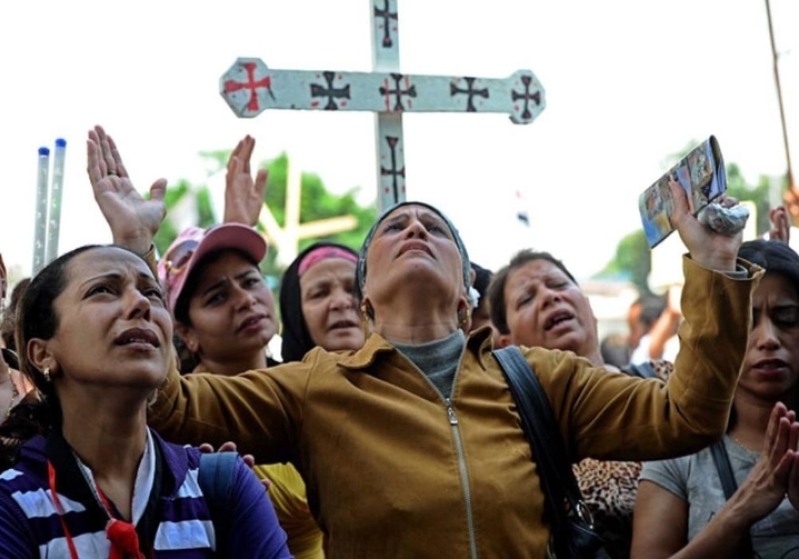
Suspected Islamic extremists attacked a group of Coptic Christians - many of them children - in southern Egypt on Friday, killing at least 26 people and wounding 26 others as they were driving to a monastery.
A Christian official in Minya Province, south of Cairo, said the assailants opened fire on a pickup truck carrying workmen and a bus carrying worshipers heading towards the Monastery of St. Samuel the Confessor in Minya province. Only three of the children traveling with the worshippers survived, local media claimed.
Khaled Mogahed, the Health Ministry spokesman, said that the death toll reached 26 but feared it could rise further.
"We are having a very hard time reaching the monastery because it is in the desert," Ibram Samir, a Christian official in Minya province, tells The New York Times. "It's very confusing. But we know that children were killed."
Witnesses said there had been between eight and 10 attackers, and that they had been wearing military uniforms.
While no group has claimed responsibility for the attack, Islamic State (IS) militants have targeted Copts several times in recent months.
The group claimed responsibility a deadly church attack in December that killed dozens of people. In April, ISIS claimed twin attacks on churches on Palm Sunday, which left 49 dead. The attack has since been recognized as the deadliest attack against Egypt's Coptic Christians in years.
Earlier this month, the jihadist group vowed to carry out more attacks against the country's Christians, who make up around 10 percent of its population of about 90 million, and warned Muslims to stay away from Christian gatherings.
"We are warning you to stay away from Christian gatherings, as well as the gatherings of the army and the police, and the areas that have political government facilities", an unnamed ISIS leader said in an interview in the ISIS Al Naba weekly newspaper, according to the MailOnline.
The continued targeting of religious minorities prompted President Abdel Fattah al-Sisi to declare a state of emergency and vow to protect them from extremism.
However, the continued persecution of Christians at the hands of ISIS did not deter Pope Francis from visiting the country's Christian community last month, notes Newsweek. Speaking at Cairo's Al-Azhar University, he encouraged Christians to participate in a "fanaticism of charity" to those who carry out evil acts in the name of religion and called on Muslims to promote co-existence with Christians.
"Any other type of fanaticism does not come from God, and is not pleasing to him," Francis said. "True faith is one that makes us more charitable, more merciful, more honest and more humane...it makes us see the other not as an enemy to be overcome but a brother or sister to be loved, served and helped."







